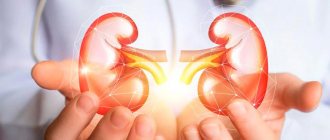Gastroenterology - a branch of medicine specializing in diseases of the gastrointestinal tract. Almost every person in his life has encountered acute or chronic diseases of the digestive system. But, probably, not everyone addressed them to a gastroenterologist. But it is advisable to make an appointment with a doctor at the first symptoms of dysfunction of these organs, since it is much easier to treat diseases in the initial stage. If you ignore the symptoms for a long time, there is a high probability that the pathology will become chronic.
In an advanced stage, some diseases of the gastrointestinal tract can cause life-threatening complications (perforation of an ulcer, acute pancreatitis, stuck gallstones, etc.). Moreover, it often happens that until the moment of acute resolution, the symptoms are erased, and the patient does not pay much attention to them, and therefore does not go to the doctor.
What diseases does a gastroenterologist treat?
A gastroenterologist specializes in the diagnosis and treatment of diseases of all organs of the gastrointestinal tract:
- esophagus : reflux disease, esophagitis, achalasia cardia, esophagospasm, hiatal hernia, diverticulum, Barrett's esophagus, tumors;
- stomach and duodenum : gastritis, erosion, ulcers, duodenitis, dumping syndrome, polyps, gastric diverticulum, tumors;
- small intestine : enteritis, Whipple's disease, lactase deficiency, Crohn's disease, tumors;
- colon : different types of colitis, Crohn's disease, dysbacteriosis, tumors;
- liver : hepatitis, hepatosis, cirrhosis, tumors, cysts;
- gallbladder : cholangitis, cholecystitis, dyskinesia, cholelithiasis, tumors;
- pancreas : pancreatitis, cysts and tumors.
In addition, gastroenterologists treat congenital anomalies of the gastrointestinal tract in children.
Competence of a gastroenterologist
Children require special attention to their initial stage of development and formation of the body. A gastroenterology specialist must delve into several areas of medicine, both general and specialized. He must know the basics of child psychology, neurology, and so on.
The practice of a modern doctor in this field is based on the following principles:
- Treatment
- Diagnosis of childhood diseases
- Assessment of the child’s physical and neuralgic characteristics
- Reception in medical institutions and patient management
- Treatment of diseases of internal organs and their systems
- Specialization in the prevention of various diseases of the child's body
- Prevention of acute, chronic and infectious diseases
- Carrying out a course of treatment
- Vaccination
- Selection of treatment method
All these functions are performed by the same specialist, or rather, a pediatrician and a gastroenterologist. His main task is to collect a whole picture of the processes occurring in the body; he monitors everything in the body from the respiratory organs to digestion and peristalsis in children.
Narrow specializations in gastroenterology
Among doctors specializing in diseases of the gastrointestinal tract there are several narrower specializations. This division helps the specialist to study in more depth and detail the diagnosis and treatment of diseases of a certain area of the gastrointestinal tract. The following specializations are distinguished:
- hepatologist - deals with diseases of the liver and gall bladder;
- proctologist - treats diseases of the rectum;
- coloproctologist - specializes in problems with the entire colon;
- gastroenterologist-surgeon - performs operations on the gastrointestinal tract.
The gastroenterologist sends the patient to these more specialized specialists if he discovers a disease that is difficult to diagnose or treat. And standard cases with easy differential diagnosis and treatment are handled independently.
The most common gastrointestinal problems
People often ask the question: what diseases does a gastroenterologist treat? Below we highlight the most common:
- Gastritis, ulcerative lesions of the duodenum, small and large intestine.
- Irritable bowel syndrome, Crohn's disease.
- Biliary dyskinesia.
- Refluxes and esophagitis.
Now you know who a gastroenterologist is and what he treats . Often he has to identify and treat diseases of the liver or bile ducts. It also happens that the gastroenterologist refers to other doctors. The digestive system consists of a huge number of organs, which is why highly specialized doctors deal with certain diseases:
- Proctologist - identifies and treats diseases of the colon.
- Hepatologist is a doctor who specializes in liver diseases.
If the gastroenterologist cannot find the cause of the symptoms, or he is sure that the cause is not in the gastrointestinal tract, then he will refer the patient to a general practitioner.
Have questions?
You can get detailed information about services and prices and make an appointment by phone. Information about the location of our clinic and directions can be found in the Contacts section.
For what symptoms should you contact a gastroenterologist?
- Abdominal pain of unknown etiology.
- Heartburn and belching.
- Pain when swallowing or difficulty passing food.
- Unpleasant taste in the mouth.
- Regular heaviness in the stomach after eating.
- Nausea or vomiting.
- Chronic and severe flatulence.
- Constipation or vice versa diarrhea.
- Unmotivated weight loss.
- Problems with the absorption of certain vitamins.
- Intolerance to some types of natural food.
- Chronic apathy and fatigue.
- Sallow or yellow complexion.
- Red or black blood in the stool.
In addition, you should definitely contact a gastroenterologist if you have a family history of problems with gastrointestinal diseases. Also, a general practitioner, infectious disease specialist, cardiologist or doctor of another specialization can refer you to a gastroenterologist if he discovers that the symptoms are actually caused by a pathology of the gastrointestinal tract.
Finally, it is very advisable to do regular preventive examinations, for healthy people - once every 2-3 years, and for those who already have a history of acute or chronic disease of the gastrointestinal tract - once a year. In addition, some professions require a certificate from a gastroenterologist stating that the person does not have serious diseases in this area.
Frequent heartburn
Many people know what heartburn is. It is important to understand that occasional heartburn should not be a cause for concern. However, if you feel heartburn constantly and there is a frequent need to take antacids, you should not think that this is the norm.
Frequent heartburn
Frequent heartburn can be a sign of gastritis, ulcers, dysbiosis, candidiasis, or gastric hernia. If your heartburn is accompanied by any of the symptoms, such as difficulty swallowing, food getting stuck, or painful swallowing, you should see a gastroenterologist immediately as this could be a sign of cancer.
When reflux is diagnosed, treatment is prescribed, and in rare cases, even surgical treatment may be recommended for a gastric hernia.
What to look for when choosing a gastroenterologist
A good gastroenterologist regularly takes advanced training courses and often has award certificates. A good sign is conducting scientific activities. The presence of a scientific degree indicates recognition of the doctor’s experience and professionalism by a special commission. If you need a gastroenterologist with an above-average level of qualifications, be sure to pay attention to a scientific degree.
The more experience the doctor has, the more reliable it is. It is better to choose a specialist who has at least 10 years of practical experience. The accumulated knowledge allows us to quickly make the correct diagnosis and better navigate treatment. This also affects the quality of hardware research and surgical operations, since this requires “training the hand” and the eye.
A good gastroenterologist will definitely ask about other diseases that the patient currently or previously suffered from. They can cause or be caused by gastrointestinal diseases. Also important is the attentiveness of the doctor, his desire to conscientiously understand the patient’s situation, explain the intricacies of diet and prevention, and answer all the patient’s questions.
Reviews on the Internet do not always directly correlate with the quality of the doctor, since they are often written for money. In practice, it happens that the higher a doctor’s salary, the more positive reviews he has on the Internet. Also, doctors from private clinics have more positive reviews than from public clinics, since the clinic’s management cares about the reputation of its employees.
How to prepare for an appointment with a gastroenterologist
Most often, no preparation is required for the first appointment with a gastroenterologist. After all, only there the doctor will make the first examination and determine the paradigm for further examination. But you will already need to prepare for the hardware examination procedures. Only in exceptional cases, before the first consultation, a gastroenterologist may prescribe a special diet before the examination, an enema or abstinence from food in the morning. If you want to do an ultrasound of the abdominal cavity, then three days before it you need to exclude from your diet foods that cause flatulence: rye bread, legumes, cabbage, etc.
Is it possible to undergo a comprehensive examination in one place?
We offer everyone who cares about their own health, but wants to save time and money, to undergo a comprehensive examination, or Check-Up, of the stomach.
As part of the screening you:
- Consult a gastroenterologist.
- You will undergo FEGDS, Helicobacter pylori test and acidity determination.
- Get tested (complete blood count + ESR, biochemistry 7 indicators, stool examination for protozoa and Giardia cysts using enrichment method).
The cost of a comprehensive examination is 5,990 rubles (savings – 600 rubles).
How does an appointment with a gastroenterologist proceed?
First of all, the doctor will question you in detail about the symptoms that bother you, when the disease began, whether it is related to any food products, whether your relatives have the same problems, whether you had the same symptoms earlier in life, what other diseases you have, etc. etc. Also, the specialist will be interested in a list of medications taken against other diseases, since they can have side effects on the gastrointestinal tract.
After taking a thorough history, the doctor begins a physical examination of the patient. A phonendoscope is used for listening. The doctor determines the boundaries of the organs using the tapping method (percussion). The doctor will also feel the abdomen and check to see if it causes pain.
At the final stage of the first consultation, the doctor writes a list of tests and examinations that the patient needs to undergo to clarify the preliminary diagnosis. At the next consultation you will need to bring the results of these tests and examinations and, based on them, the doctor will draw up a complete picture and make a final diagnosis. The gastroenterologist will then prescribe a treatment regimen and observe what effect it has on a particular patient.
How to lose weight correctly?
Since you have decided to lose weight, it means that you are obese. First of all, you need to understand that obesity is a disease, i.e. a pathological metabolic disorder. This is one of the diseases treated by a gastroenterologist. Like any disease, obesity has its own causes, its own pathogenesis, and the attending physician needs to understand exactly what they are. By restoring impaired metabolism, relieving inflammation of the gastrointestinal tract, adjusting diet and physical activity, an experienced gastroenterologist can very easily achieve the desired effect and help the patient lose weight.
Treatment methods
The most effective method of treating chronic diseases of the gastrointestinal tract is following a special diet. There are special diets by numbers that are used for various diseases. The doctor can make individual adjustments to them depending on the characteristics of the patient’s body. You need to follow a diet for a long time, it should become part of your lifestyle.
If the diet does not completely help, as well as in cases of pain that significantly interferes with the patient, the doctor prescribes medication. The following groups of drugs are used: antacids, gastroprotectors, adsorbents, enzymes and antienzymes, carminatives, probiotics, painkillers. Often several drugs from different groups are prescribed simultaneously for complex treatment.
In acute, life-threatening conditions, surgery is indicated. Most often this happens when a stomach or duodenal ulcer is perforated, stones get stuck in the bile ducts, and some other emergency pathologies. If complex conservative treatment does not help, then surgery is also indicated for the patient, but not as urgently.
Prevention of gastrointestinal diseases
There are general rules of life that can significantly reduce the harmful effects on the gastrointestinal tract and extend the period of its flawless operation:
- eat more often, but in portions not exceeding 350 ml;
- exclude chips, crackers, marinades, smoked meats;
- every day eat a portion of oatmeal, buckwheat, wheat or millet porridge;
- replace white bread with bran bread;
- reduce the amount of fat in the diet;
- eat a portion of fresh vegetable salad every day;
- drink at least 1.5 liters of liquid;
- include natural probiotics in your diet: kombucha, fermented milk products, sauerkraut;
- exclude carbonated drinks;
- do not abuse coffee;
- exclude medications from the NSAID group (non-steroidal anti-inflammatory drugs);
- If possible, avoid alcohol.
If these measures become a way of your life, then the likelihood of developing a chronic gastrointestinal disease will become much lower. Also, this will help avoid recurrence of diseases that have already occurred, but have been successfully treated.
Symptoms of digestive diseases
In order to accurately understand which specialist to contact, you need to clearly know the main symptoms of the disease. If unpleasant urges are felt in the abdomen, especially burning or tingling, constantly bothering the child, then study the main signs of gastrointestinal diseases:
- Nausea, heartburn, burping
- Infrequent stool
- Abdominal pain or tingling
- Loss of appetite
- Bleeding during bowel movements
- Dramatic weight loss
- Bad breath
Here are the main and most common signs of diseases of the digestive system. The sooner you notice, the sooner you can prevent deterioration in health. Be more attentive to complaints about your child’s well-being. A competent specialist in symptoms can quickly determine the suspected disease or abnormality.
In order not to trigger existing problems in the intestines on your own, monitor your baby’s nutrition. Reaction pancreatitis and gastritis occur in almost every schoolchild. From this we can draw only one conclusion - proper and balanced nutrition. For normal active functioning of a child, three meals a day are required, and you can also add healthy snacks: yogurt or fruit. Avoid drinking highly carbonated drinks that irritate the stomach walls. The diet must include liquid cereals, soups, and natural juices to replenish water balance and ease the digestion of food.









